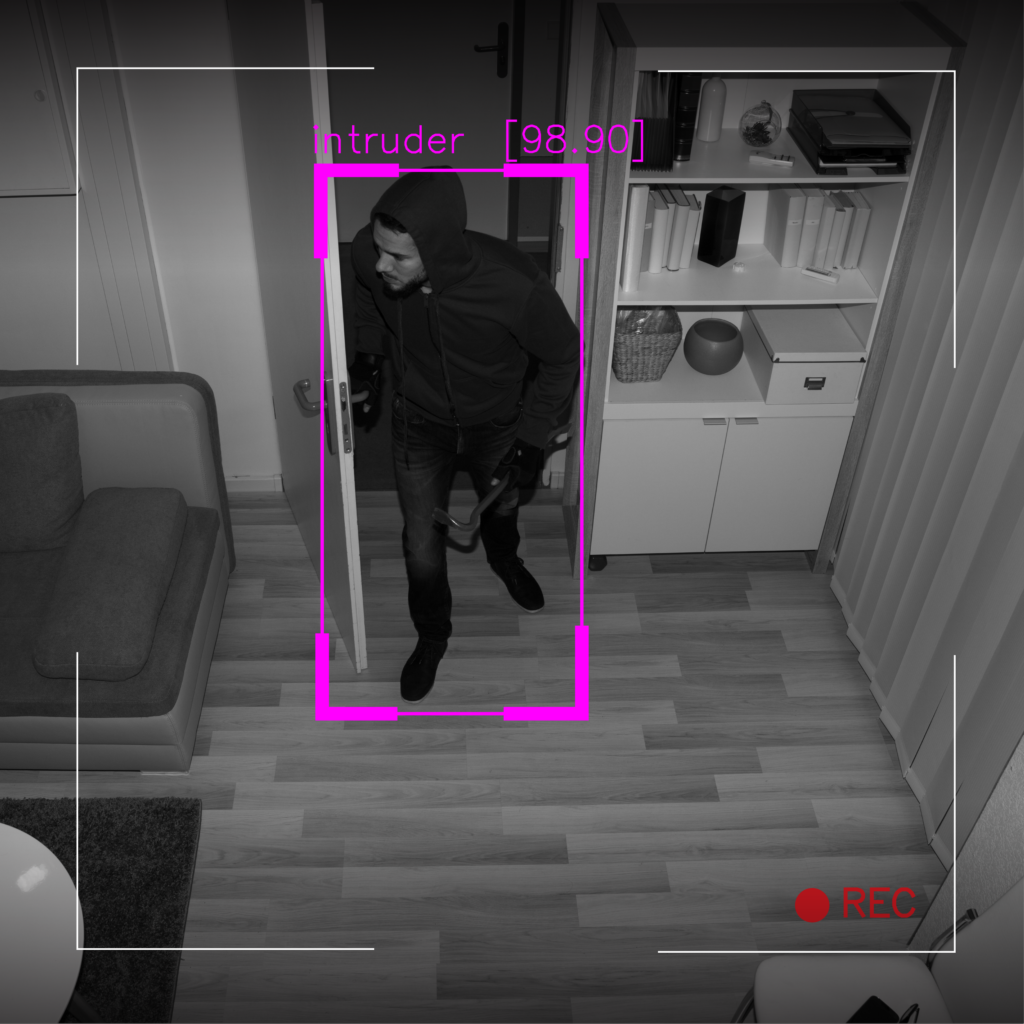As artificial intelligence continues to advance, there is growing concern over the ethical implications of AI-enabled video surveillance, particularly concerning privacy and bias. A 2019 American Civil Liberties Union report warns that such technology may compromise our civil liberties in dangerous ways. However, ethical considerations do not necessarily have to come at the expense of safety.
In this blog post, we will explore the importance of ethical considerations in AI-enabled video surveillance, how to balance them with safety concerns, and how Actuate’s AI system avoids algorithmic and user bias, respects privacy, and is compliant by design.
The Problem with Unethical Video Surveillance
As the use of AI-enabled video surveillance becomes more widespread, concerns about the ethical implications of these technologies have come to the forefront. When surveillance technology is not designed with ethical considerations in mind, it can lead to several dangers.
One of the main dangers is the potential for algorithmic bias. Algorithms not adequately tested for bias can lead to unfair outcomes, such as targeting individuals from particular racial or ethnic groups more frequently than others. In some cases, this can even result in false accusations or wrongful arrests. For example, a 2019 study by the National Institute of Standards and Technology found that facial recognition algorithms have a higher false-positive rate for African American and Asian faces than for Caucasian faces.
Another danger of AI-enabled video surveillance without ethical considerations is the invasion of privacy. This can occur when surveillance technology monitors individuals in private spaces or tracks their movements without their knowledge or consent. For example, using facial recognition technology in public spaces can lead to constant monitoring and profiling of individuals, compromising their privacy.
These potential dangers highlight the need for ethical considerations to be at the forefront of any development or implementation of AI-enabled video surveillance technology. Without proper ethical considerations, the use of these technologies can lead to significant harm to individuals and society as a whole.
The Benefits of Ethical Video Surveillance
While unethical AI-enabled video surveillance poses potential risks, ethical video surveillance can offer numerous benefits. One significant advantage is improved public safety. Video surveillance can deter criminal activity, aid in investigations, and provide evidence for criminal prosecution. With ethical considerations, video surveillance can protect civil liberties by avoiding invasive technologies such as facial recognition and respecting individual privacy rights.
AI Bias
The issue of AI bias in video surveillance is a critical consideration. Biased algorithms can result in unfair treatment of certain groups and perpetuate systemic inequalities. In the worst cases, biased video surveillance can lead to harm, such as wrongful arrests. Actuate recognizes the danger of AI bias and is committed to addressing it in its security technology. Our AI video analytics software is built from the ground up to eliminate algorithmic bias and detect objects and actions rather than individuals.
Privacy
Privacy is a fundamental human right, and video surveillance can be intrusive if not designed with privacy in mind. Unethical video surveillance systems may use invasive technologies such as facial recognition, track individuals’ movements, or collect data without consent. At Actuate, we respect privacy in our security technology by not analyzing individuals but by detecting objects and actions only and not collecting or sharing data with third parties. This approach ensures that privacy is protected while still providing the necessary security features.
Compliance
Compliance with applicable laws and regulations is crucial to ensure video surveillance is used ethically and legally. Actuate is compliant by design, meaning we’re built from the ground up to comply with relevant laws and regulations. This approach ensures that Actuate’s security technology respects civil liberties, privacy, and ethical considerations while still providing necessary security features.
Conclusion
Ethical considerations are crucial in the development and implementation of AI-enabled video surveillance. Unethical video surveillance practices can compromise privacy and civil liberties and contribute to algorithmic bias. However, with ethical considerations in mind, AI-enabled video surveillance can have many potential benefits, such as improving public safety while protecting civil liberties.
Security professionals and decision-makers must prioritize ethical considerations when implementing video surveillance technology. At Actuate, we ensure that our video surveillance software is built with ethical considerations in mind, including addressing AI bias and respecting privacy. We encourage readers to consider implementing ethical video surveillance technology, such as Actuate, in their security operations to ensure they uphold the highest ethical standards.



